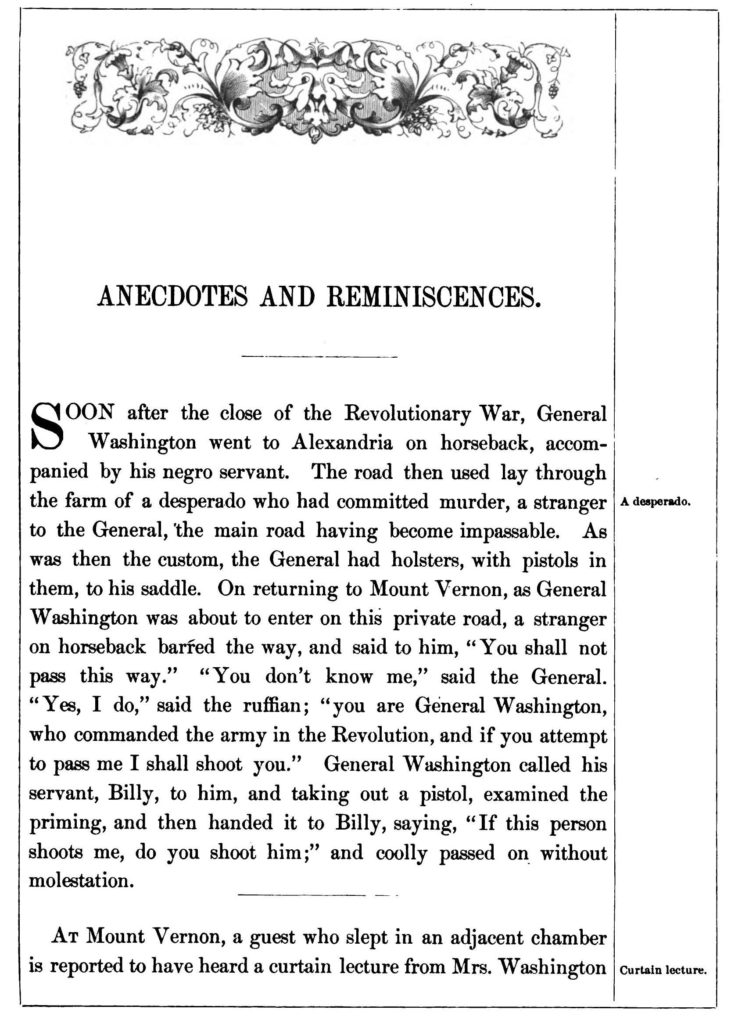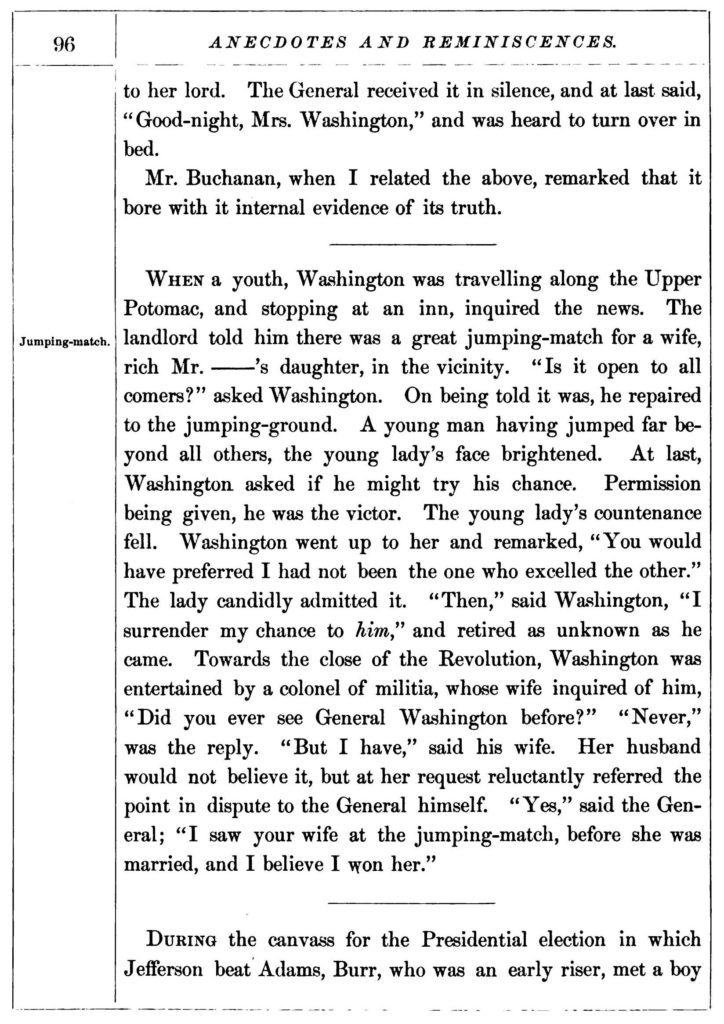On November 3, the Supreme Court will hear arguments in New York State Rifle & Pistol Association v. Bruen, a challenge to New York’s law restricting the carrying of concealed handguns in public places. The briefing from both parties focused extensively on history, but the Petitioners, led by the NRA’s New York affiliate, placed significant weight on a seemingly minor issue of historical fact: whether prominent members of the founding generation carried guns.
Specifically, in an effort to paint firearms-ubiquity as part of this nation’s original fabric, Petitioners asserted in their opening brief (at 6) that George Washington, Thomas Jefferson, and John Adams “carried firearms and supported the right to do so.” Given the stakes Petitioners have raised in this case—at bottom, they maintain that the Second Amendment forecloses regulating the carrying of deadly weapons in public—their historical claims on simple, factual points ought to be scrupulously supported. But that is not so. Petitioners cited only to a 2016 district court decision, Grace v. District of Columbia, and the sources the district court cited (at 137) do not withstand close examination.
Most troublingly, the George Washington anecdote appears in a volume, drawn from the papers of a wealthy plantation owner who was three years old when Washington died, that was “privately printed for the gratification of his family and friends.” Tayloe, In Memoriam (1872). It relates (at 95-96) an anecdote to which—if true—the only witnesses would have been Washington, his servant, and a “ruffian,” alongside a report from “a guest who slept in an adjacent chamber” to Washington’s at Mount Vernon about a “lecture” Washington received from his wife, and a tale about Washington winning a “jumping-match for a wife,” then yielding to the runner-up upon seeing the young woman’s dismay:


To credit any detail in these anecdotes as historical fact reveals a willingness to accept anything, so long as it is in print. And yet not only did Petitioners do precisely that through their citation to Grace, but so have several of Petitioners’ amici and amicus counsel, who previously cited Tayloe directly—even as they hold themselves out as expert scholars of Second Amendment-related history.
Grace’s anecdotes about Jefferson and Adams fare no better under scrutiny. The first Jefferson claim arises from an unsupported reading of a letter Jefferson wrote to his nephew urging a lifestyle of honesty, education, sleep, and exercise. “As to the species of exercise,” Jefferson urged, “I advise the gun”:
“In order to assure a certain progress in this reading, consider what hours you have free from the school and the exercises of the school. Give about two of them, every day, to exercise; for health must not be sacrificed to learning. A strong body makes the mind strong. As to the species of exercise, I advise the gun. While this gives a moderate exercise to the body, it gives boldness, enterprise, and independence to the mind. Games played with the ball, and others of that nature, are too violent for the body, and stamp no character on the mind. Let your gun therefore be the constant companion of your walks. Never think of taking a book with you.”
Thus, Jefferson’s recommendation to “[l]et your gun … be the constant companion of your walks” self-evidently referred to hunting and recreation, not to carrying a gun for self-defense in populated areas as part of everyday life. There is no doubt that many of the founding generation hunted for sport or sustenance; but the individual Petitioners in NYSRPA were already granted permits to carry concealed handguns in rural areas for activities including hunting, and what they challenge is the denial of their desire to carry concealed guns in populated areas throughout the state, for the generalized purpose of self-defense. So to show that Jefferson hunted or recommended hunting proves nothing remotely relevant to the case.
The remaining claims are equally weak. The second claim about Jefferson—that he once left a pistol at an inn and asked two friends to retrieve it for him—reveals nothing about whether Jefferson carried firearms in public for self-defense (as opposed to transporting a firearm secured in luggage on one occasion), particularly given that the letter Jefferson sent to the innkeeper says that the pistol he left was “in a locked case.”
Finally, the quotation from Adams’s argument on behalf of British soldiers he was defending against murder charges ignores that he was speaking of taking up arms in the context of defending against a riot—and likewise ignores his role as a lawyer.
In their reply brief (at 10-11), Petitioners doubled down on their appeal to prominent founders’ supposed habit of carrying firearms, calling it “authority” that “cuts against” the state. Again they relied solely on Grace, but this time they omitted Washington from their list of founders who carried (perhaps having realized the folly of Tayloe’s stories) and added Patrick Henry. But, like Jefferson’s letter to his nephew, Grace’s Henry anecdote (recounting a “musket slung over his shoulder to pick off small game”) concerns hunting, and thus proves nothing relevant to this case.
Ultimately, even if Petitioners had located sound evidence that Washington, Jefferson, Adams, Henry, or other founders made it their practice to carry guns in public for self-defense, that still would have no bearing on the Second Amendment question. As Justice Thomas has explained, “the simple fact that the Framers engaged in certain conduct does not necessarily prove that they forbade its prohibition by the government.” But Petitioners’ inability to muster more than historically dubious citations for an issue they appear to believe is highly significant raises serious questions about the quality of other historical work in their submissions. This is surely not the material with which major constitutional questions should be answered.

